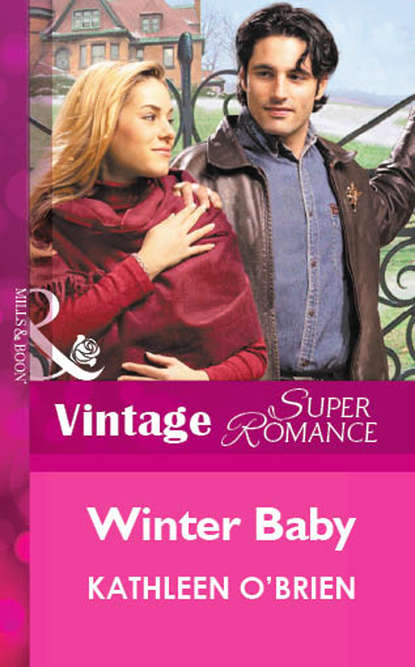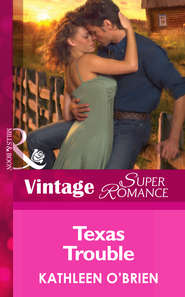По всем вопросам обращайтесь на: info@litportal.ru
(©) 2003-2025.
✖
Winter Baby
Автор
Год написания книги
2018
Настройки чтения
Размер шрифта
Высота строк
Поля
Most of all, he liked knowing that most of the 2,937 “Glenners,” whom he’d been hired to protect, were safely tucked in for the night. The rest, the Fussy Four Hundred, as they were known in the Sheriff’s Department, were gathered in the assembly room of City Hall for an ice festival planning session.
Parker, who had just responded to a prowler call at the park—a false alarm, of course—was a little late to the meeting, which had begun at eight. By now the planning session had probably escalated from civilized discussion to hotheaded shouting, and Bourke Waitely was undoubtedly brandishing his cane like a weapon.
But the image didn’t make Parker hurry. As long as he got there before nine, he’d arrive in time to forestall any actual violence.
And when it was all over, he’d be off duty, and Theodosia Graham, who owned the Candlelight Café, had a hot, thick slice of pumpkin pie waiting for him.
“You’re one damned lucky man, Tremaine.”
Realizing he’d spoken out loud, Parker had to laugh. The chuckle formed a small white puff in the icy air, like a visible echo.
Lucky? Him? That was pretty damn funny, actually.
He was the thirty-four-year-old divorced sheriff of a tiny Adirondack town that gave bad winters a new meaning, and he was looking forward to spending Christmas Eve alone with a seventy-five-year-old spinster and a piece of pie.
Plus, apparently he’d begun talking to himself on the sidewalk, which back in Washington, D.C. would have scared all the other pedestrians into crossing the street.
Who in his right mind would call this lucky? He looked at himself in the window of Griswold’s Five and Dime. The only guy out here, shuffling along in a freezing rain, no wife waiting at home, no kids dreaming of sugarplums, not even a girlfriend dreaming of a diamond. The textbook illustration of a loser.
So what the hell did he have to be so smug about?
Nothing. He grinned at the guy in the window. Nothing except for the fact that, after twelve years of exile, he was home again. He had ditched a career he hated, even though everyone told him he was crazy to give it up. And the beautiful, bitchy wife he couldn’t please had finally ditched him, though everyone had told him he was nuts to let her go.
But he didn’t care. He liked being alone, and he liked being the sheriff of Firefly Glen. In fact, he was so damn pleased with his life that he decided he’d give Theo Graham a great big sloppy Christmas kiss.
“Sheriff! Sheriff, come quick! It’s an emergency!”
Parker looked over toward the emphatic voice. It was Theo. She had climbed down onto the front steps of City Hall, and she was leaning forward into the wind, her sweater wrapped tightly but inadequately around her bony shoulders.
He loped up the icy steps carefully, wondering what the problem was. Could he have misjudged the timing? Could Bourke Waitely actually have thumped someone with his cane? God, he hoped it hadn’t been Mayor Millner. Alton Millner would slap Waitely in jail just for the fun of it.
“What’s happened, Theo?”
“It’s Granville Frome,” Theo said as they hurried through the doors. “He was boring everybody to tears with tourism figures, you know how he is. So Ward Winters called him a greedy little pea-brain, and before you could say ‘stupid old coot’ Granville came around the table and knocked Ward to the floor. They were still down there, wrestling like a couple of crazed teenagers, when I came out to look for you.”
Parker shook his head. Ward Winters was usually smarter than that. Everybody in Firefly Glen knew that Granville Frome, who owned half the downtown property, wasn’t a greedy little pea-brain. Frome’s brain was much bigger than a pea, and his ego was considerably larger. And his temper was bigger still.
The scene inside was pure melee. So many people were standing around, waving their arms and shouting, that Parker had a hard time finding Ward and Granville. Finally he pushed his way through to the center of the room, where he saw the tangle of flannel and denim, long, bony limbs and mussed silver hair that constituted the two elderly combatants.
Granville’s grandson, Mike Frome, was leaning over the two old men, begging his grandfather to stop and plucking at any arm or leg that stood still long enough. Mike looked up as he saw the sheriff enter the room, and Parker could tell that the teenager had received a shiner for his efforts. Poor kid. He’d look like hell by morning.
“Sheriff! I’ve been trying—”
“Greedy son of a bitch!”
“Cave-dwelling Neanderthal!”
“Oh, God, Granddad, stop. Please, just stop!” Mike looked harried and embarrassed. “He won’t listen to me, Sheriff.”
“He probably can’t hear you.” Parker pointed to a couple of other men. “Sam. Griffin. Give us a hand here.”
It was a struggle, but the combined efforts of the four relatively young males finally pulled the two old scrappers apart. And then it took all four of them to keep them separated—two on Ward, two on Granville. The old men glared at each other, their chests heaving and their arms still straining to land one more punch, until gradually their breathing slowed.
Parker, who was in charge of Ward’s right arm, felt the slow return of common sense. The shoulder relaxed slightly, and the fist dropped to the old man’s side.
“Oh, all right, damn it,” Ward Winters said gruffly. “You can let go now. I won’t kill the stupid son of a—”
“You couldn’t kill me if you tried, you pathetic old bastard!”
The four guards tightened their grips as Granville Frome tried to lunge forward once again. Parker glanced over at Mike, who held his grandfather’s left shoulder in a determined clutch. “Mike, can you get him home?”
Mike nodded. He turned to Granville. “Grandmother is going to be really mad,” he said. “You promised her you’d behave if she let you come tonight.”
Ward Winters made a scoffing noise. “I should have known you’d let your wife tell you what to do, Granville, you pitiful little—”
Parker let his hold on Ward’s elbow tighten painfully. “Enough,” he said firmly, and Ward subsided with a low, unintelligible muttering.
Parker turned to the crowd. “This meeting is over, folks,” he said, raising his voice to be heard over the din. “The weathermen are calling for six inches by sunup. Might be a good idea for everyone to head on home now.”
No one resisted, but still it took a while. Goodbyes between friends were slow, with warm Christmas messages sent home to loved ones. Between enemies, parting was even slower, with all parties vying to have the last word. And then it took forever for coats, scarves, hats and mittens to be divvied up and donned.
While Ward and Parker stood there, about ten women—all between the ages of sixty and eighty—stopped to be sure Ward was all right. Parker had to smile as he watched the ladies fuss over the old guy, smoothing his thick shock of wavy white hair, tenderly brushing dust from the sleeve of his blue flannel shirt and offering to deliver everything from aspirin to chicken soup in the morning.
Ward, whose lanky good looks had attracted women like this for most of his seventy-seven years, brushed them all off brusquely, but Parker noticed that a subtly flirtatious charm lay beneath the gruff exterior.
Add that to his mansion and his millions, and it was no wonder the ladies were enchanted. Roberta Winters, Ward’s wife, had died last year, and the women of Firefly Glen were lined up at the gate, hoping for a chance to be the next Mrs. Winters.
Parker wished them luck. But he had a feeling that Ward would be single for a long time. There weren’t many women in Firefly Glen—or in the entire world, for that matter—who could compete with Roberta Winters.
“So tell me the truth,” Parker said as he and Ward ambled out of the nearly empty meeting room. “Why are you so hell-bent on stopping the ice festival?”
Ward winced as he shoved his hand into his glove. “That blasted fool damn near broke my wrist.”
Parker let the silence stretch, waiting for his answer. Finally Ward turned to him with a scowl. “Why do I want to cancel the festival?” He growled under his breath. “Because I don’t want a bunch of morons crawling all over my town, clogging my streets and my air with their dirty cars. I don’t want the café crammed with their slobbery children. I don’t want to have to fight through a noisy horde of them to buy a stamp at Griswold’s. I don’t want to find them tramping across my lawn taking pictures of my house—my private house!”
He pulled his muffler tight around his neck, achieving an amazingly rakish look for a man his age. “And I damn sure don’t want them to move here. I don’t want them thinking that pretty patch of woodland over by Llewellyn’s Lake would be the perfect spot for their tacky new mansion.”
Parker chuckled. “You know, Ward, two hundred years ago the land where Winter House stands was probably forest, too.”
“I don’t care.” Ward waved his hand, then winced. His wrist must really be hurting him. “I don’t want them mucking up my town.” They were passing the one bar approved by the cautious city council, and Ward jabbed his forefinger toward its sign irritably. “Look at that! Cricket’s Hum Tavern? What the hell kind of name is that? Ever since we’ve started bringing in the tourists, we’ve become so damn cheesy I could just throw up.”
He started reading the signs as they walked. “Frog’s Folly Children’s Fashions. Candlelight Café. Black Bear Books. Duckpuddle Diner.” He made a face. “Duckpuddle Diner?”
“Yeah, I thought that one was a little much myself.”
“Well, if we’ve already sunk to Duckpuddle Diner, can Sweet Sally’s Smut Shoppe and the Lorelei Land-fill be far behind?”
Ward wasn’t really expecting an answer, and Parker didn’t give him one. He knew it was a legitimate debate, whether the town leaders should go looking for growth and prosperity or whether they should concentrate on keeping Firefly Glen safe and clean—and small.











